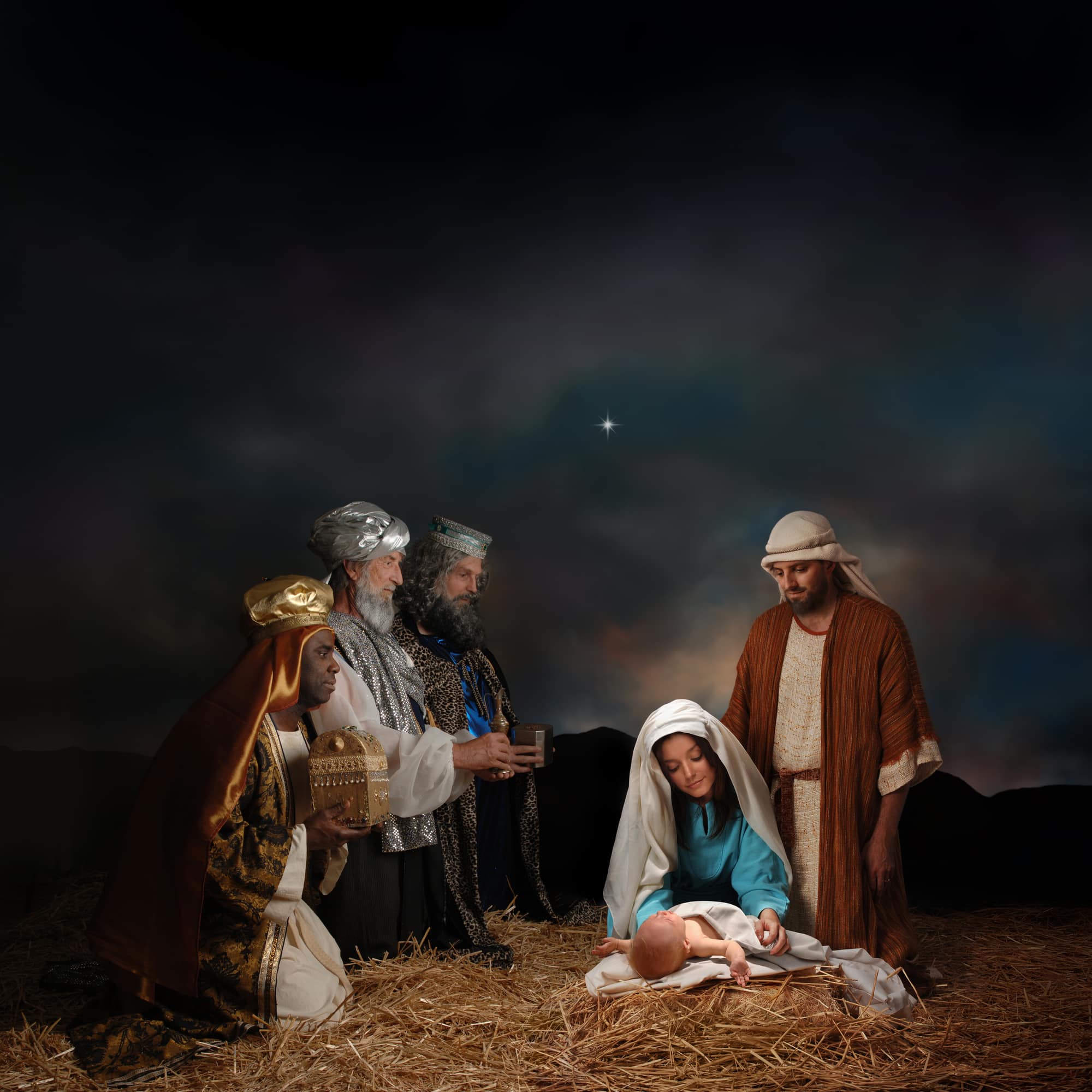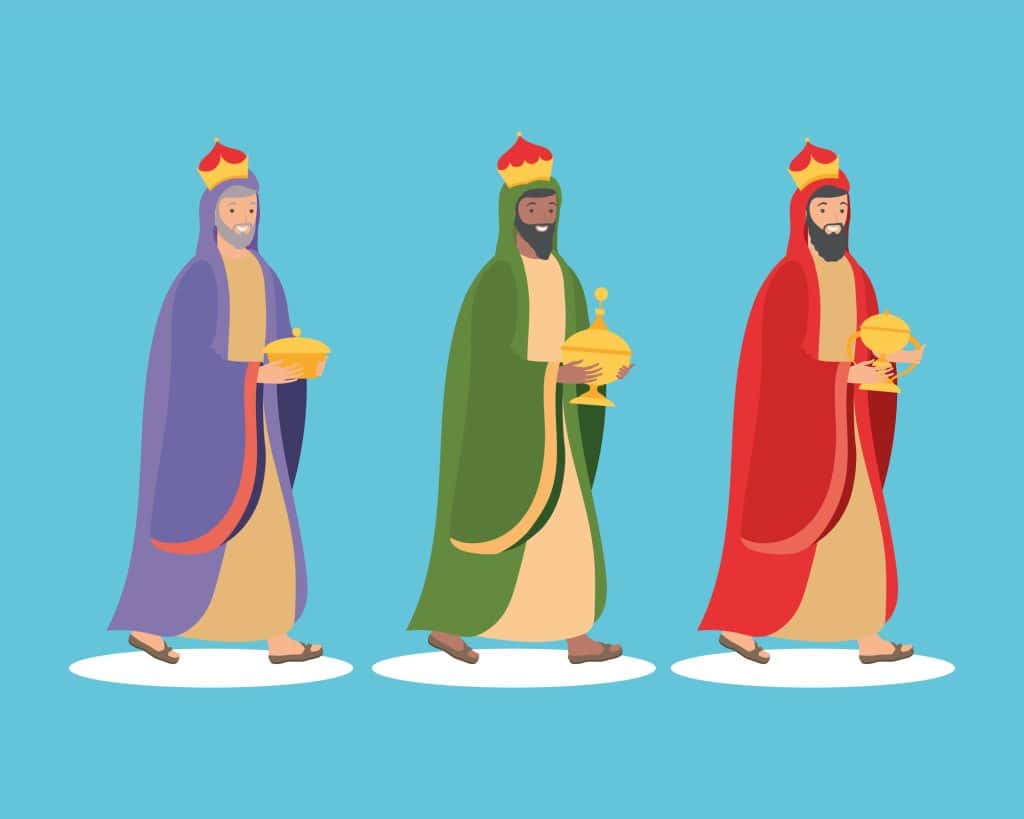Who Were The Wise Men in the Bible?

It’s that time of the year when we celebrate Christmas with our loved ones. The holidays bring so much joy and as we enjoy the festivities, we are reminded of the significance of the birth of our Lord and Saviour Jesus Christ.
Christmas is a great time to ponder on the life and ministry of Jesus. The Bible offers a detailed account of Jesus’ life, starting from his birth. When we read about Jesus’ birth, we learn about the wise men who sought Him out and brought Him gifts.
Who were the wise men in the Bible, and what do we learn from their encounter with Jesus? In this blog post, we unravel the mysteries of the Wise Men in the Bible, exploring the deeper meanings of their visit to the newborn Messiah and the symbolic gifts they gave Him.
This post may contain affiliate links. You can read my full affiliate disclosure here.
Who Were The Wise Men in The Bible?
Who were the wise men in the Bible? The story of the Wise Men is found in the Gospel of Matthew in the New Testament of the Bible. In Matthew 2 vs 1-12, we read the Bible story of their journey from the East to Jerusalem, their inquiry about the newborn King of the Jews, their visit to Bethlehem guided by a star, and their presentation of gifts to the baby Jesus.
Jesus was born in Bethlehem in Judea, during the reign of King Herod. At the time Jesus was born, some wise men from the East saw a bright star in the sky, signaling the birth of a new king, the King of the Jews. They traveled to Jerusalem to inquire about this new King and to worship him.
When King Herod heard about the wise men’s quest, he became troubled, as he saw this potential new king as a threat to his own reign. Herod consulted with the chief priests and teachers of the law, asking them where the Messiah was to be born. They pointed to one of the prophecies of Jesus in Micah 5:2, which indicated Bethlehem as the birthplace of the Messiah.
Herod then secretly met with the wise men and asked them to find the child and report back to him so that he could also go and worship the baby. The wise men continued their journey and followed the star, which led them to Bethlehem where Jesus was.
They found the Christ child with his mother, Mary, and they presented him with gifts which were not only valuable but also held symbolic significance.
Being warned in a dream not to return to Herod, the Wise Men left for their own country by another route. This divine intervention protected the infant Jesus from Herod’s wicked plan.
The Wise Men’s visit to Jesus in Bethlehem reinforces the idea that Jesus is the fulfillment of prophecies of the coming of the Messiah.

What are the names of the Three Wise Men?
The names of the Three Wise Men are not actually mentioned in the Bible. The Gospel of Matthew simply refers to them as “Magi from the East” without specifying the number or providing individual names.
The term “Magi” refers to a group of wise men, astrologers, or scholars from the East. The biblical account focuses on the significance of their visit rather than detailing their personal identities.
Meaning of the Gifts for Jesus
When the wise men came to visit Jesus they offered him three significant gifts that were a symbol of His identity and mission:
The Gift of Gold
Gold is a precious metal synonymous with wealth and royalty and was a customary offering for kings. In those days, the accumulation of gold was a chief measure of affluence. The Wise Men’s gifts of gold to the infant Jesus were not merely an act of generosity, it was a symbolic recognition of his kingly status. By presenting gold, the Wise Men proclaimed Jesus as a King of Kings.
The Gift of Frankincense
Frankincense is an aromatic resin obtained from certain trees and is commonly used in incense and perfumes. It was a rare and costly substance at the time Jesus was born. It was burned as incense in religious rituals and is associated with worship and offerings. The gift of frankincense signifies the divinity of Jesus. It acknowledges Him as a sacred and divine being worthy of adoration.
The Gift of Myrrh
Myrrh is a resin with a bitter taste and a pleasant fragrance. It has been historically used for medicinal and embalming purposes. The gift of myrrh to the infant Jesus carries a less happy symbolism. Myrrh is associated with suffering and death, foreshadowing Jesus’ future sacrificial death on the cross. This gift serves as a symbolic recognition of the redemptive purpose of Jesus’ life, emphasizing the eventual sacrifice that he would make for the salvation of humanity
The gifts the Wise Men presented to Jesus were not ordinary gifts, they told a story about God’s Son, Jesus Christ, and what He was going to do on earth. As we read about these gifts, we can remember that Jesus is not just a regular baby. He is the Saviour whose sacrifice allows us to come freely to God today.
Final Thoughts on Who Were The Wise Men in the Bible
The story of the Wise Men in the Bible, as recounted in the Gospel of Matthew, is a captivating and spiritually rich narrative. These men from the East followed a rising star in the sky, leading them to the humble town of Bethlehem where the infant Jesus was born.
Their inquiry about the newborn King of the Jews set in motion a sequence of events that affirmed Jesus’ identity as the prophesied Messiah. Though the Bible doesn’t specify their names, the significance of their visit lies in the symbolic gifts they presented and not their identities.
The gifts they gave-gold, frankincense, and myrrh—each served as a testament to Jesus’ royal status, divine nature, and the redemptive purpose of His life. The Wise Men’s discernment to follow a different route, guided by a divine warning, emphasizes the importance of heeding inner convictions and navigating our paths with spiritual discernment.
As we celebrate this season with loved ones, may the timeless wisdom of the Wise Men be a part of our larger Christmas, recognizing the significance of Jesus not just as a historical figure but as a living presence, inviting us to offer our best to Him and follow the path of love, worship, and sacrifice.






